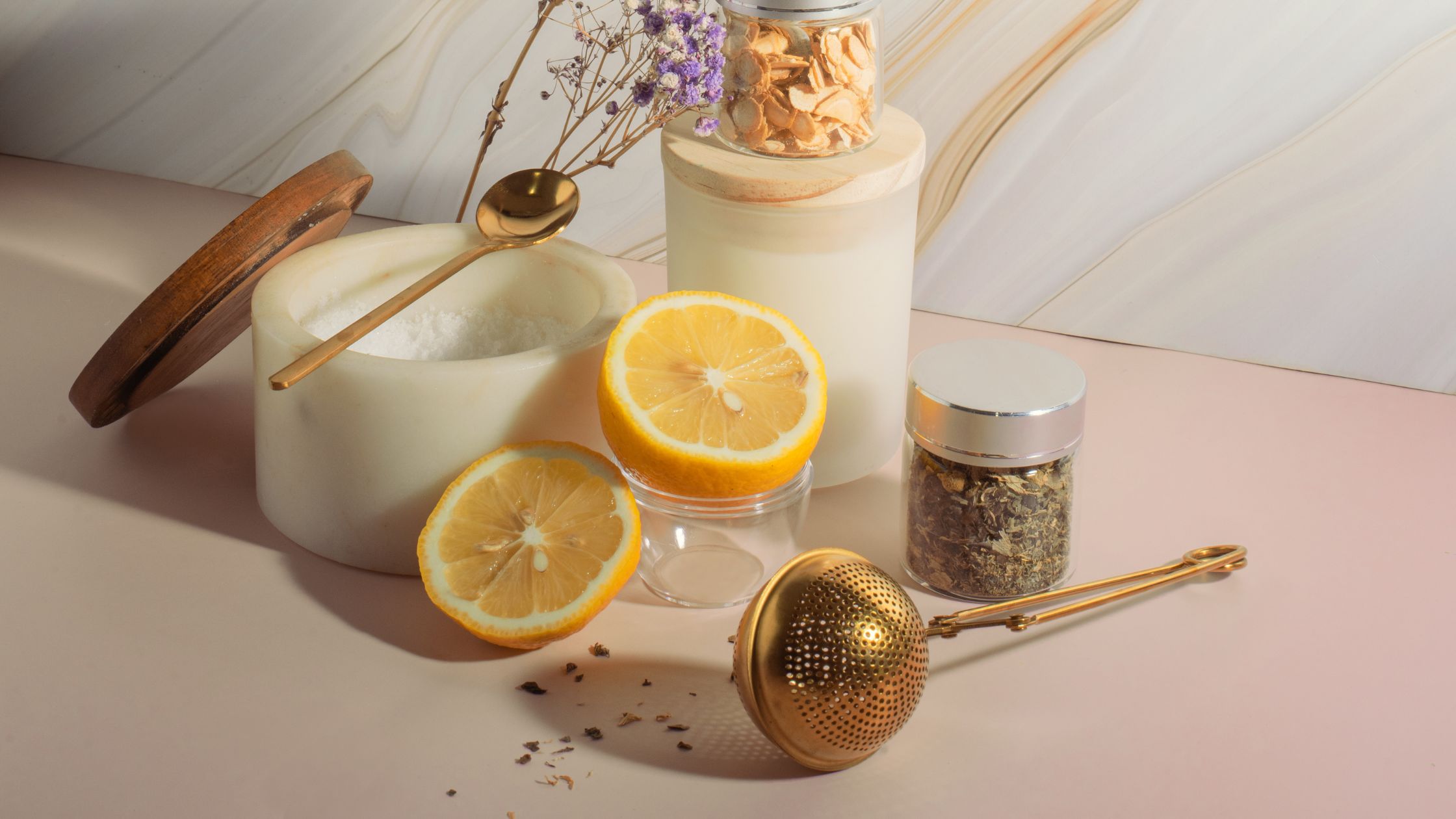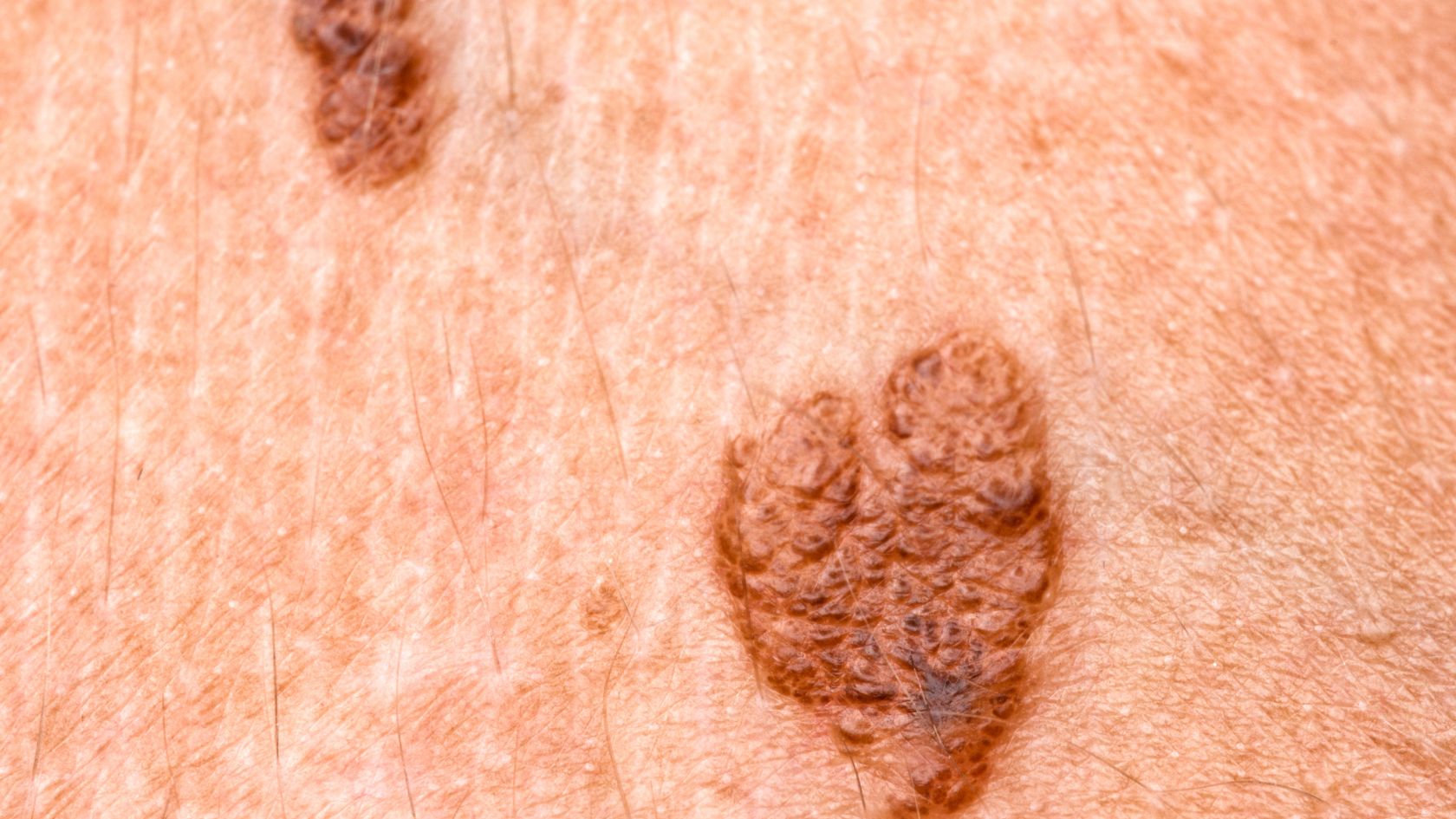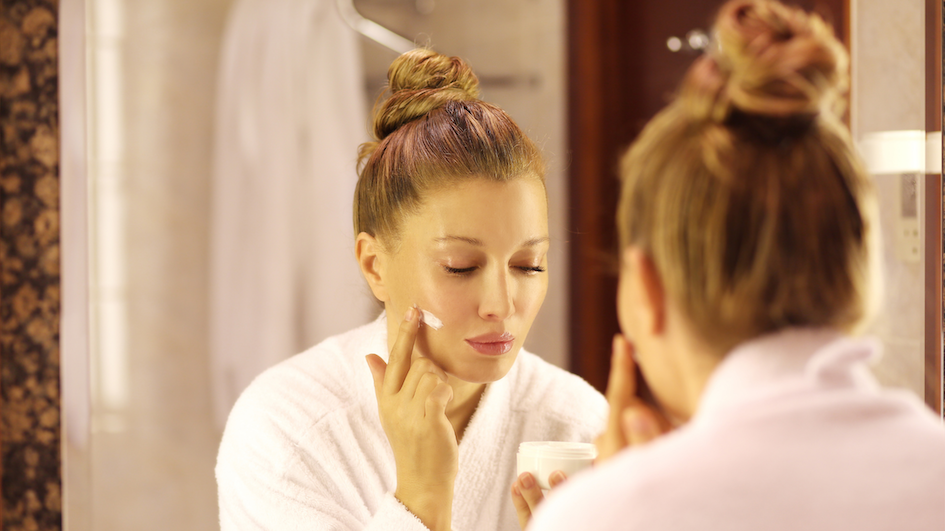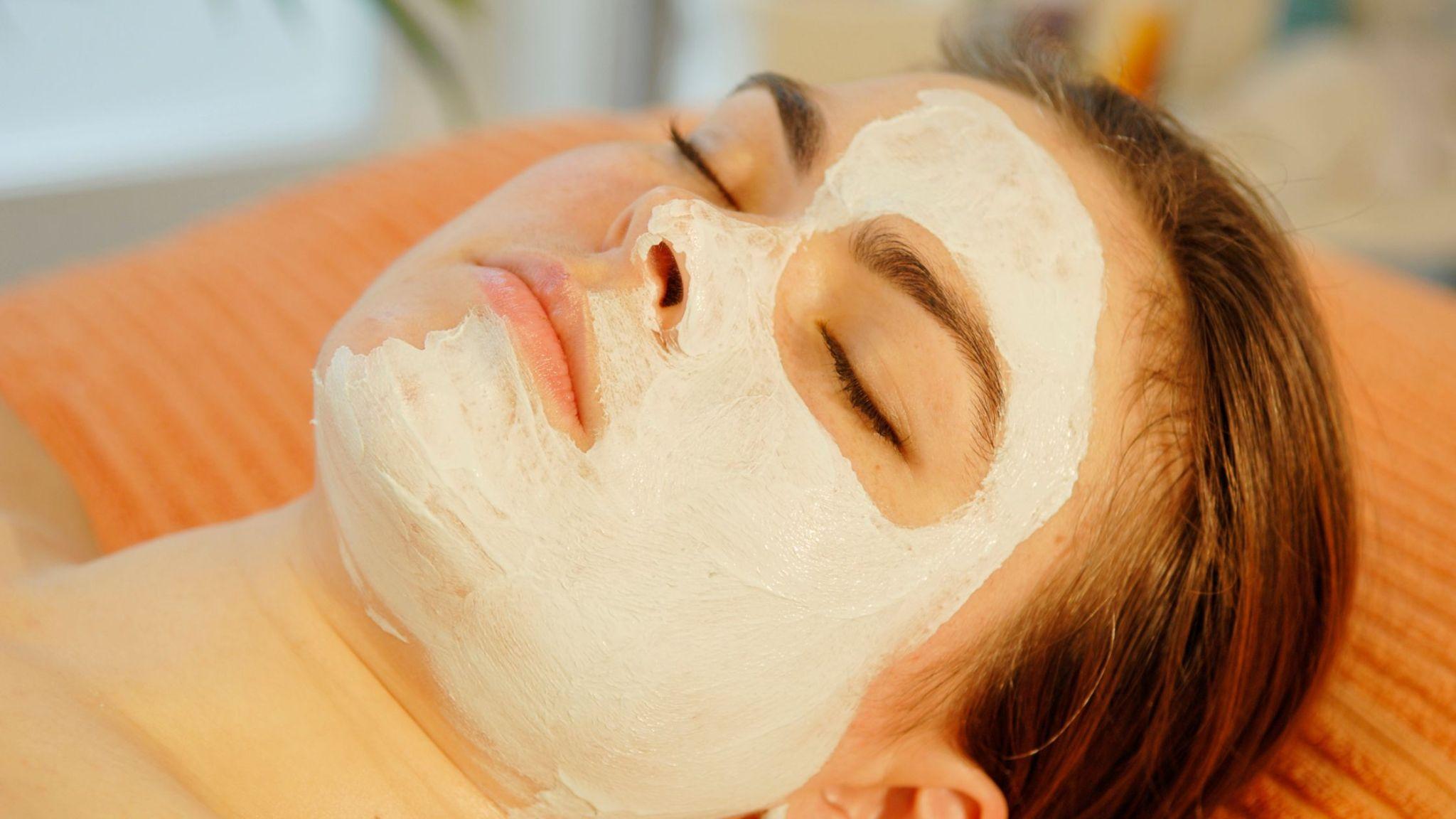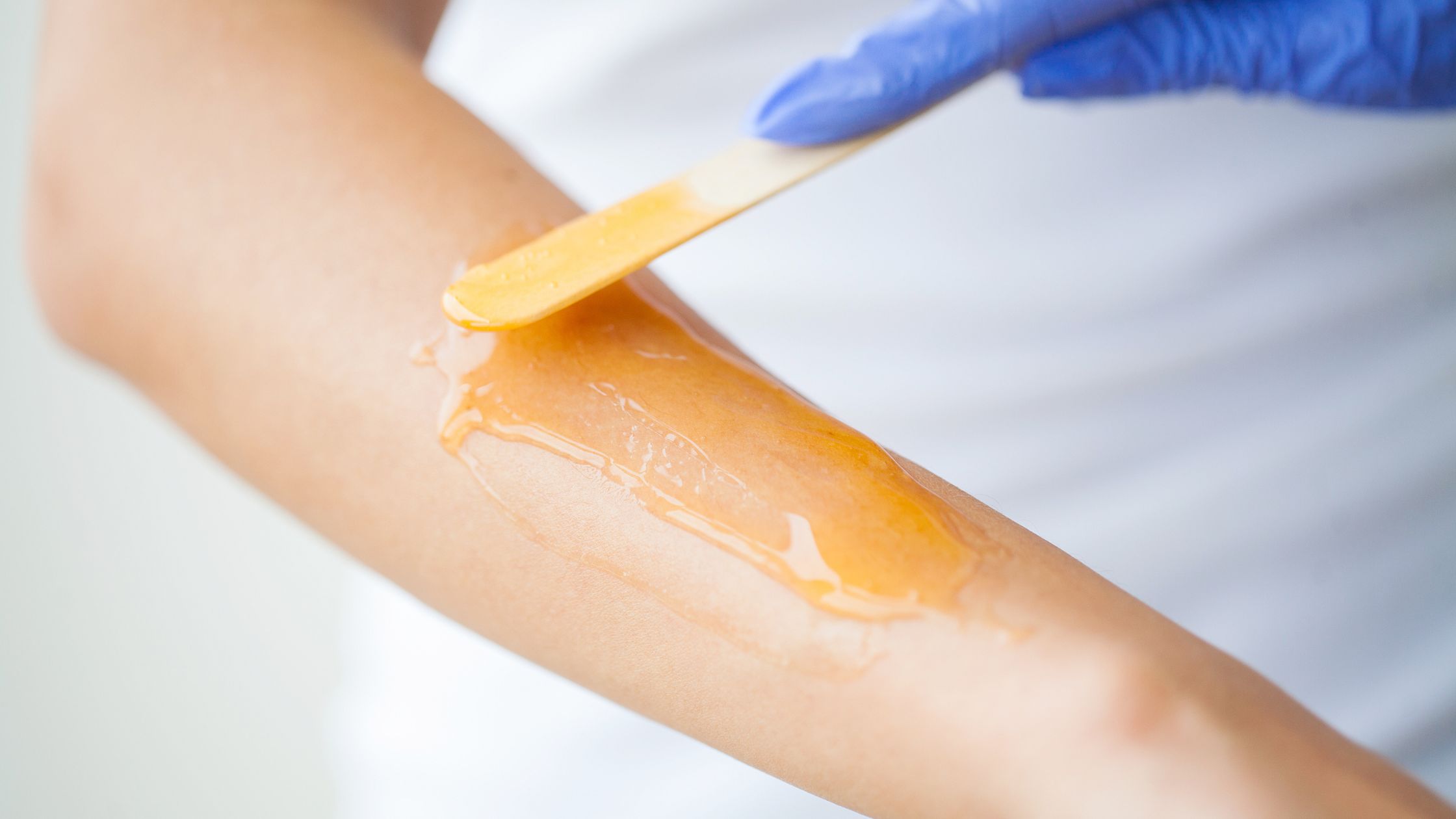1. Choose a Soap-free cleanser
Your usual soap tends to have a lot of chemicals that will be harsh on your skin and strip natural oils from it. Soap-free cleansers, on the other hand, will keep your natural oils intact and make your skin supple. These cleansers will only remove dirt and excess oil and will never dry out your skin.
No matter how oily your skin feels, do not wash your face more than 2-3 times a day. Sebum(oil) production further increases due to overwashing and will result in blackheads and clogged pores.
How to wash your face using a soap-free cleanser:
- Choose a cleanser that suits your skin type. It’s best to do a patch test before you add the product to your daily routine.
- Wet your face using lukewarm water.
- Take a small amount of the cleanser on your palm and gently massage it on your face in a circular motion.
- Rinse your face thoroughly and pat dry using a towel.
2. Exfoliate Regularly
Exfoliation should always be a key part of your skincare routine, more so during the monsoon. Exfoliation helps to get rid of impurities, unclog pores, and remove dead skin cells from your skin. This results in a smoother and brighter complexion. Exfoliation also helps in improving the blood circulation in your skin and aids other skin care products to penetrate better. It is a good practice to exfoliate 2-3 times a week during the monsoon season.
How to exfoliate your skin:
- Choose a gentle exfoliator that suits your skin type. Look out for products with fine particles or chemical exfoliants like AHAs (Alpha Hydroxy Acids) or BHAs (Beta Hydroxy Acids) that do not cause any irritation but remove dead skin cells effectively.
- Before you start, clean your face with a mild cleanser and pat your face dry. Make sure it’s clean and damp.
- Take a small amount of exfoliator and gently massage it onto your face. Make sure you don’t apply excessive pressure.
- Give attention to areas that are prone to get oilier such as the forehead, nose, and chin.
- Once done, rinse your face thoroughly using lukewarm water. Make sure no residue is left behind.
3. Apply sunscreen
Surprised? No matter what the season is, sunscreen is a must for healthy and protected skin. The UV rays from the sun can still do enough damage to your skin during the rainy season, as they can easily penetrate through clouds. If your skin tends to get very oily during the monsoon, you can choose a non-oily sunscreen. Make sure to apply sunscreen before stepping out, irrespective of how cloudy the day is. It is best to choose a sunscreen with SPF 30+ as it offers optimum protection. Also, make sure to reapply the sunscreen after every few hours.
4. Choose minimal makeup
If you are someone who wears minimal makeup or no makeup at all, it is best to continue the same during this season. Heavy makeup doesn’t go well with humidity and will easily mix with sweat or rainwater. It will block your pores, causing various skin issues and irritation.
If you are someone who can’t live without makeup, try to choose the gentler options. Choose mild makeup creams that will even out your complexion but allow your skin to breathe freely. Do not layer your skin with foundations and concealers. It is also good to avoid lipstick. Instead, use tinted lip balms to nourish your lips and give them a natural color.
5. Use Antifungal Powder
Whenever we talk about a skincare routine, it is important to concentrate on the whole body rather than just the face. During monsoons, the fungus is one of the leading causes of skin problems. The humidity in the air will make the various skin folds in your body accumulate sweat and moisture, making it a breeding ground for fungus. Constant exposure to puddles, and dirty water can also contribute to fungal infection. The best way to avoid this situation is by using an antifungal powder after a shower.
While applying this powder, pay more attention to areas that sweat or where the moisture can get accumulated easily such as toes, groins, and underarms. The powder will act as a protective barrier from fungus all through the day.
6. Use a toner
Exposure to humidity can disrupt the pH balance of your skin, making it greasy and sticky during the monsoon season. So use an alcohol-free toner to avoid this situation. The best part is, it can also eliminate dirt and seal your pores. Choose a toner that is rich in antioxidants like glycolic acid, and green tea extracts. They ensure that your pH is perfectly maintained, thereby eliminating acne breakouts and blemishes.
Toners are also adept in removing traces of oil, dirt, and other impurities that cling to the skin even after cleansing. Few toners contain hydrating ingredients like glycerin and hyaluronic acid, which gives an additional layer of moisture to your skin. This is important during monsoons when high humidity leads to excess moisture loss from your body.
7. Apply Moisturizer
This point will crush all the myths about moisturizers and monsoons. Yes, it is very important to include a moisturizer in your monsoon skincare routine. Your skin needs to be moisturized and hydrated throughout the year. This way, it doesn’t have to work overtime and produce excess natural oils to make your skin healthy.
Your skin can get dehydrated during monsoon due to factors like air conditioning, temperature fluctuations, and exposure to rainwater. The moisture in the air can also affect your skin’s natural barrier. Applying moisturizer strengthens this barrier. It is best to choose a moisturizer that is lightweight and has ingredients like hyaluronic acid and aloe vera.
8. Use Vitamin C
Including Vitamin C in your monsoon skincare routine can be highly beneficial as it is a powerhouse of antioxidants and offers numerous skin benefits. It not only boosts your immune system and fights infection but also protects your skin from free radicals, the most common natural element causing skin damage.
Include Vitamin C serum in your daily skincare routine to maintain youthful skin. It eliminates the growth of microorganisms, lessens blemishes and scars, and prevents aging. It also aids in collagen production and helps maintain the elasticity and firmness of your skin.
Bonus if you could include Vitamin C in your daily diet during the monsoon season. Eat a lot of Vitamin C-rich fruits like oranges and grapefruit.
9. Use a clay mask
Clay masks are known for their ability to draw out impurities, absorb excess oil, and cleanse the skin deeply. Increased humidity during monsoon can clog your skin pores. This can be eliminated by deep cleaning your skin using clay masks. The absorbent properties of clays masks minimize the risk of acne and promote balanced skin by removing all the excess oil. A clay mask is your best solution to prevent blackheads and whiteheads formation during monsoon season.
How to use a clay mask:
- Cleanse your face thoroughly to remove any dirt, impurities, and excess oil. Pat your face dry using a towel.
- Apply an even layer of clay on your skin using a brush or your fingertips. Avoid touching the lip area and eyes. Cover the skin entirely with clay.
- Leave the clay on your face for 10-15 minutes or till it dries completely. You can also follow the time recommended in the instruction manual for the clay mask.
- Once done, use lukewarm water to rinse off the clay. Massage your face in a circular motion to exfoliate the dead skin cells and enhance the outcome.
10. Take extra care of sensitive areas
The sensitive areas of your skin, mainly the areas around the eyes and lips are thinner than the rest of your face. So it is natural that these areas require additional attention during monsoon. For your lips, it is best to use a lip scrub to get rid of flaky skin. Also, make sure to apply lip balm every day, especially before going to sleep. For your eyes, use an eye cream every night to prevent puffy eyes, dryness, and dark circles. It is also recommended to follow this tip throughout the year and it should not just be a part of your monsoon skincare routine.
Wrapping Up
No doubt the upcoming monsoon is going to be tough on your skin. So it’s important to follow the above monsoon skincare tips and keep your skin hydrated and moisturized at all times. Make sure to protect your skin from rainwater and clean your skin regularly to remove excess oil, impurities, and dirt. Most importantly, don’t forget to follow a balanced diet. This will ensure that you will have youthful and healthy skin throughout this rainy season.
Looking for the best skin treatment in Bangalore? Visit Dr. Renu’s clinic. Book an appointment today.






